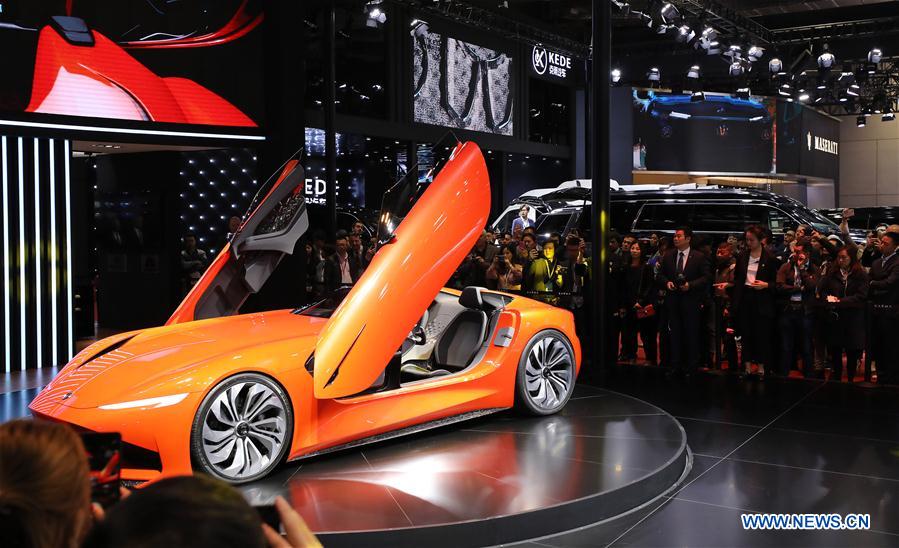World's largest auto market eyes NEV, AI for new growth
 0 Comment(s)
0 Comment(s) Print
Print E-mail Xinhua, April 19, 2019
E-mail Xinhua, April 19, 2019

More competitive market
China's fast growth in automobile sales came to a halt last year. Car sales in 2018 dropped by over 4 percent from a year earlier, representing the first decline in 28 years, according to CAAM data.
However, exhibitors at the show generally saw the slowdown as an opportunity rather than a risk.
Eberlein said the demand for high-quality vehicles is still strong in China. Younger generations are keen on premier brands and new models with high-end configuration, especially when they renew their transport tools.
"For Jebsen Motors, we are confident of meeting China's new trends in the automotive market together with the Porsche brand," he said.
In 2018, the added value of the automobile manufacturing industry increased by 4.9 percent year on year, and the main business income increased by 2.9 percent, which indicates that the industry has undergone the smooth adjustment in the upgrading of industrial structure, according to the Ministry of Industry and Information Technology.
The NEV market has seen a more fierce competition, as China opened up the market wider.
In January, U.S. electric carmaker Tesla started construction on its first factory in China, with an annual production capacity of 500,000 electric cars.
It was soon followed by the BMW Group, which announced plan to make China the company's global production base of NEVs. BMW's factory in Shenyang, capital of northeast China's Liaoning Province, is expected to mass produce the pure electric BMW car in 2020 for the global market.
By 2018, China's pure electric and plug-in hybrid vehicle sales accounted for 52 percent of the world's total, of which more than 90 percent came from independent brands, said Paul Gong, China Auto analyst of the UBS Investment Research.
He said Chinese NEV brands have gained a strong foothold in the market with their production scale. Some Chinese automakers also have an edge in the intelligent connectivity fields.
Bosch board of management member Markus Heyn said Chinese firms have been leading in the fields of electrification, automation, connectivity and individualization in the NEV market.
As of February 2019, Shenzhen-based BYD has delivered more than 50,000 pure electric buses worldwide, covering developed automotive markets in Europe, the United States and Japan. Its NEVs are sold in over 300 cities across 50 countries.






Go to Forum >>0 Comment(s)